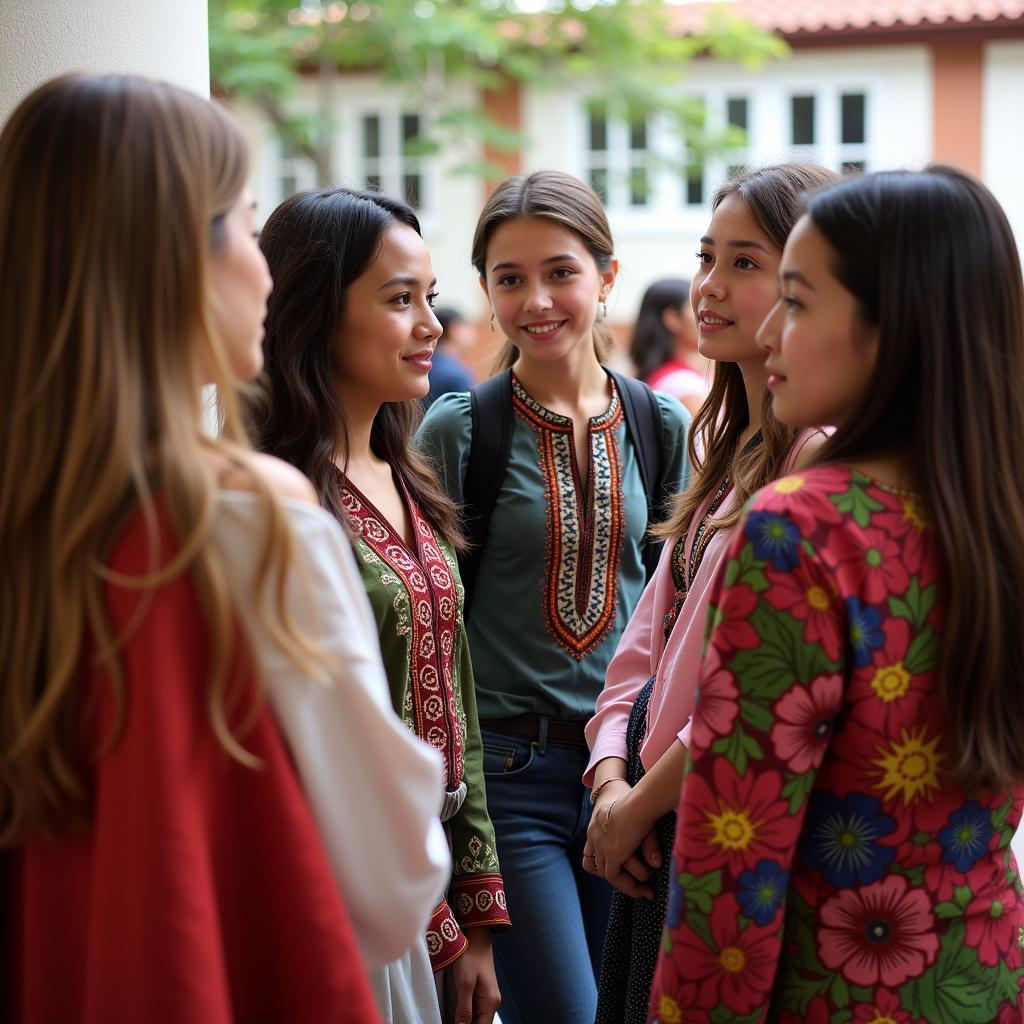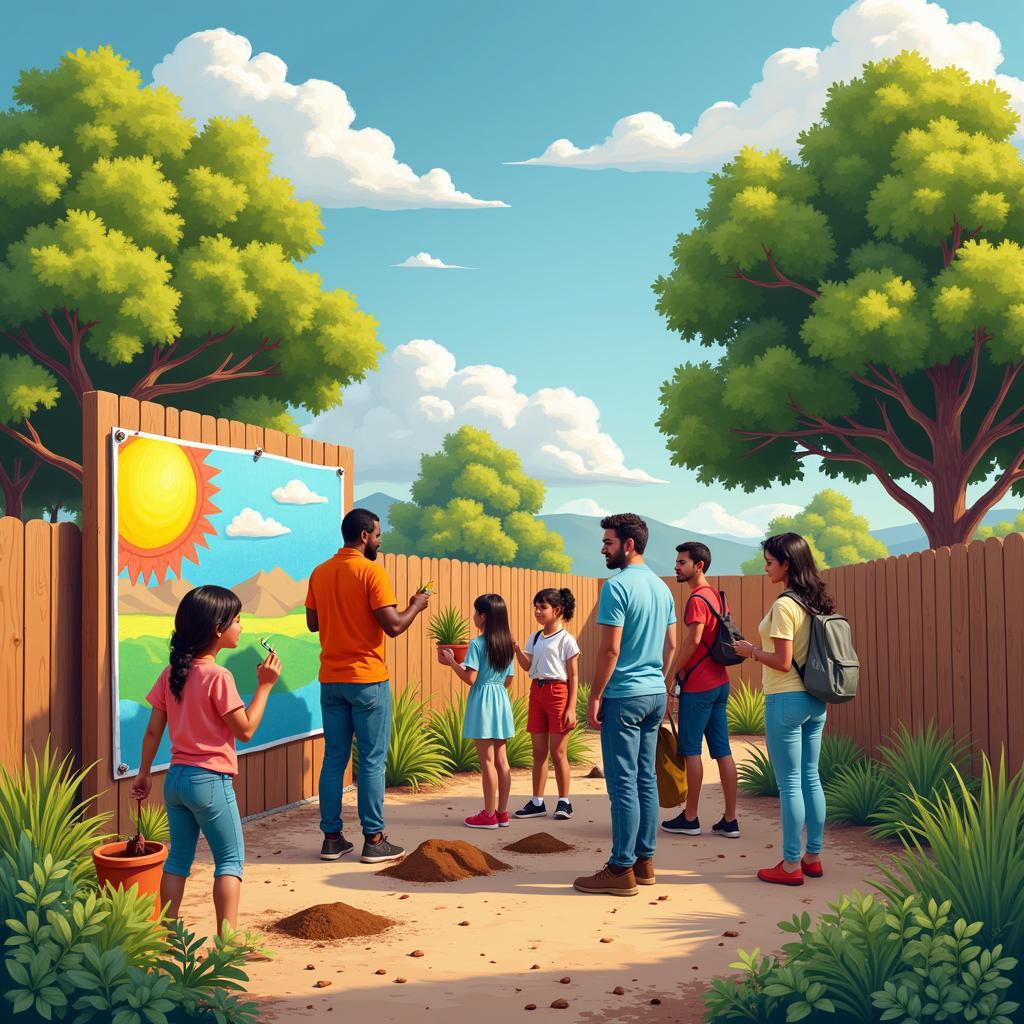A Melting Pot Society, a term often used to describe a nation where diverse cultures blend harmoniously, is a concept filled with both promise and complexity. The idea evokes images of vibrant communities, rich in tradition and united by a shared sense of belonging. However, the reality of navigating such diverse landscapes can be nuanced, demanding a conscious effort to foster understanding and respect among all members.
The Allure and Challenges of Cultural Fusion
 Diverse community celebrating together
Diverse community celebrating together
The melting pot concept is often lauded for its potential to create a dynamic and inclusive society. The influx of different perspectives, traditions, and ideas can lead to incredible innovation, creativity, and economic growth. Imagine a symphony orchestra where each instrument, though distinct, contributes to a harmonious melody – that’s the ideal of a melting pot society.
However, the path to achieving this harmony is not without its bumps. Cultural differences, if not carefully navigated, can lead to misunderstandings, prejudices, and even conflict. This highlights the importance of open dialogue, empathy, and a willingness to learn about and appreciate cultures beyond our own.
Fostering Unity in Diversity: Key Ingredients
 Students engaging in a cultural exchange program
Students engaging in a cultural exchange program
Creating a successful melting pot society requires a multi-pronged approach:
-
Embracing Inclusive Education: Educational systems play a vital role in shaping young minds. By incorporating diverse narratives, histories, and perspectives into curricula, we equip future generations with the knowledge and empathy needed to thrive in a multicultural world.
-
Promoting Intercultural Dialogue: Open and respectful communication is crucial. Creating platforms for dialogue, be it community events, workshops, or online forums, enables individuals from diverse backgrounds to share their stories, break down stereotypes, and build bridges of understanding.
-
Celebrating Cultural Expression: A society that values and celebrates its diverse cultural expressions is more likely to foster a sense of belonging among all its members. Be it through art, music, food, or language, creating spaces for cultural exchange enriches the social fabric and promotes appreciation for our differences.
Overcoming the Challenges: Towards a More Inclusive Future
 People from different backgrounds volunteering together
People from different backgrounds volunteering together
Building a truly inclusive melting pot society requires ongoing effort and commitment. We must be mindful of our own biases, challenge discriminatory practices, and actively work towards creating a society where everyone feels valued and respected. This involves:
-
Addressing Systemic Barriers: It’s crucial to acknowledge and address systemic barriers that prevent certain groups from fully participating in society. This includes tackling issues related to racial inequality, religious discrimination, and socioeconomic disparities.
-
Promoting Media Representation: Media plays a powerful role in shaping perceptions. By promoting diverse representation in films, television, and advertising, we can challenge stereotypes and foster a more inclusive narrative.
-
Empowering Marginalized Voices: Creating platforms for marginalized groups to share their stories and experiences is crucial. By amplifying these voices, we gain a deeper understanding of the challenges faced and can work collaboratively towards solutions.
Conclusion
The melting pot society, while complex, holds immense potential for creating a more just, equitable, and vibrant world. By embracing diversity, promoting understanding, and actively working towards inclusion, we can create a society where everyone has the opportunity to thrive. It’s a continuous journey, but one worth embarking on together.
FAQ
- What are some examples of melting pot societies?
- What are the benefits and drawbacks of a melting pot society?
- How can individuals contribute to creating a more inclusive society?
- What are some common misconceptions about melting pot societies?
- How do melting pot societies differ from multicultural societies?
Need Help?
For more information and support on fostering peace and understanding, please contact us:
Phone: 02043854663
Email: [email protected]
Address: Khu 34, Bắc Giang, 260000, Vietnam.
Our dedicated team is available 24/7 to assist you.